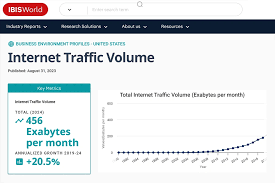The Power of Technological Innovation
Technological innovation has become the driving force behind progress in almost every aspect of our lives. From healthcare to transportation, communication to entertainment, advancements in technology continue to shape and transform the world we live in.
One of the key benefits of technological innovation is its ability to improve efficiency and productivity. By developing new tools, processes, and systems, businesses can streamline their operations and deliver better products and services to consumers.
Moreover, technological innovation plays a crucial role in solving complex challenges facing society today. For instance, breakthroughs in renewable energy technologies are helping us combat climate change, while advancements in medical technology are revolutionising healthcare and extending human life expectancy.
Another significant impact of technological innovation is its role in driving economic growth. By fostering a culture of creativity and entrepreneurship, countries can create new industries and job opportunities that contribute to overall prosperity.
However, with great power comes great responsibility. As we embrace technological innovation, it is essential to consider its ethical implications and ensure that it is used for the greater good of humanity. This includes addressing issues such as data privacy, cybersecurity, and digital divide.
In conclusion, technological innovation holds immense potential to shape a brighter future for all. By harnessing the power of technology responsibly and ethically, we can continue to push boundaries, break barriers, and create a world that is more connected, sustainable, and equitable for generations to come.
Technological Innovation: Driving Efficiency, Quality, and Global Connectivity While Creating Jobs and Solutions
- Enhanced efficiency and productivity in various industries
- Improved quality of products and services for consumers
- Creation of new job opportunities in emerging technological fields
- Advancements in healthcare leading to better treatment options and outcomes
- Greater connectivity and communication on a global scale
- Innovative solutions to complex societal and environmental challenges
Challenges of Technological Innovation: Job Displacement, Privacy, Cybersecurity, and Dependency
Enhanced efficiency and productivity in various industries
Technological innovation has significantly enhanced efficiency and productivity across various industries. By introducing automation, data analytics, and advanced communication systems, businesses have been able to streamline processes, reduce manual labour, and improve overall output. This increased efficiency not only saves time and resources but also allows companies to meet consumer demands more effectively. In sectors such as manufacturing, healthcare, finance, and logistics, the integration of innovative technologies has led to higher levels of productivity and competitiveness in the global market.
Improved quality of products and services for consumers
Technological innovation has significantly enhanced the quality of products and services available to consumers. Through advancements in research, design, and manufacturing processes, companies can now deliver goods and services that are more efficient, reliable, and tailored to meet the evolving needs of customers. This improvement in quality not only enhances the overall consumer experience but also fosters loyalty and satisfaction, ultimately driving competitiveness and innovation in the marketplace.
Creation of new job opportunities in emerging technological fields
Technological innovation has significantly contributed to the creation of new job opportunities in emerging technological fields. As industries evolve and adopt cutting-edge technologies, there is a growing demand for skilled professionals to design, develop, and maintain these innovative solutions. From artificial intelligence and data science to cybersecurity and renewable energy, emerging technological fields offer a diverse range of career paths for individuals seeking to stay at the forefront of industry trends and contribute to shaping the future workforce. This trend not only drives economic growth but also fosters a culture of continuous learning and adaptation in response to the dynamic landscape of technology-driven industries.
Advancements in healthcare leading to better treatment options and outcomes
Advancements in healthcare driven by technological innovation have revolutionised the field, offering a multitude of benefits such as improved treatment options and outcomes for patients. From cutting-edge medical devices to innovative pharmaceuticals, these advancements have significantly enhanced the quality of care provided by healthcare professionals. By leveraging technologies like artificial intelligence, precision medicine, and telemedicine, healthcare providers can now deliver more personalised and effective treatments tailored to individual patient needs. As a result, patients have access to a wider range of therapeutic options that not only target diseases more precisely but also lead to better recovery rates and overall health outcomes.
Greater connectivity and communication on a global scale
Technological innovation has greatly enhanced connectivity and communication on a global scale, breaking down geographical barriers and fostering collaboration like never before. With the rise of the internet, social media, and instant messaging platforms, individuals and communities from different corners of the world can now easily interact, share ideas, and work together towards common goals. This increased connectivity not only promotes cultural exchange and understanding but also enables businesses to reach global markets more efficiently. As a result, technological innovation has played a pivotal role in creating a more interconnected and interdependent world where information flows freely across borders, driving progress and innovation on a global scale.
Innovative solutions to complex societal and environmental challenges
Technological innovation offers innovative solutions to complex societal and environmental challenges by leveraging cutting-edge tools and approaches to address pressing issues. From developing sustainable energy sources to creating efficient waste management systems, technology enables us to tackle problems that were once deemed insurmountable. By harnessing the power of innovation, we can pave the way for a more sustainable and resilient future, where our collective efforts lead to positive outcomes for both society and the environment.
Job Displacement
Technological innovation, while offering numerous benefits, also poses the significant con of job displacement. As automation becomes more prevalent across industries, there is a growing concern about the potential replacement of human workers by machines and algorithms. This trend can lead to job losses, economic instability, and a widening gap between those who possess the skills needed in the digital age and those who are left behind. Addressing the issue of job displacement caused by technological innovation requires proactive measures such as upskilling and reskilling programmes, as well as policies that promote a smooth transition for workers into new roles or industries.
Privacy Concerns
Privacy concerns are a significant con of technological innovation. As advancements in technology continue to accelerate, the issue of data privacy and surveillance becomes more pressing. With the increasing amount of personal information being collected and stored digitally, individuals are at risk of having their data exploited or misused. This vulnerability raises important questions about how to balance the benefits of technological progress with the protection of privacy rights. It is crucial for policymakers, businesses, and individuals to address these concerns proactively to ensure that privacy remains a fundamental right in the digital age.
Cybersecurity Threats
With the rapid advancement of technology, one significant con is the escalating cybersecurity threats. As society becomes more dependent on technology, the vulnerability to cyber attacks and security breaches also rises. These threats pose a serious risk of compromising sensitive data and systems, potentially leading to severe consequences for individuals, businesses, and even entire nations. It is crucial for organisations and individuals alike to prioritise cybersecurity measures and vigilance in order to safeguard against these ever-evolving digital threats.
Technological Dependency
Technological Dependency poses a significant con of technological innovation as it can result in an over-reliance on technology, leading to a decline in essential skills, diminished critical thinking abilities, and a detachment from real-world interactions. With the increasing integration of technology into various aspects of daily life, individuals may become overly dependent on devices and systems to perform tasks that were once done manually. This reliance can erode fundamental skills such as problem-solving, communication, and creativity, as well as limit opportunities for face-to-face human interaction, potentially impacting social relationships and emotional intelligence. It is crucial to strike a balance between utilising technology for its benefits while also preserving and honing essential skills that are vital for personal growth and development.


